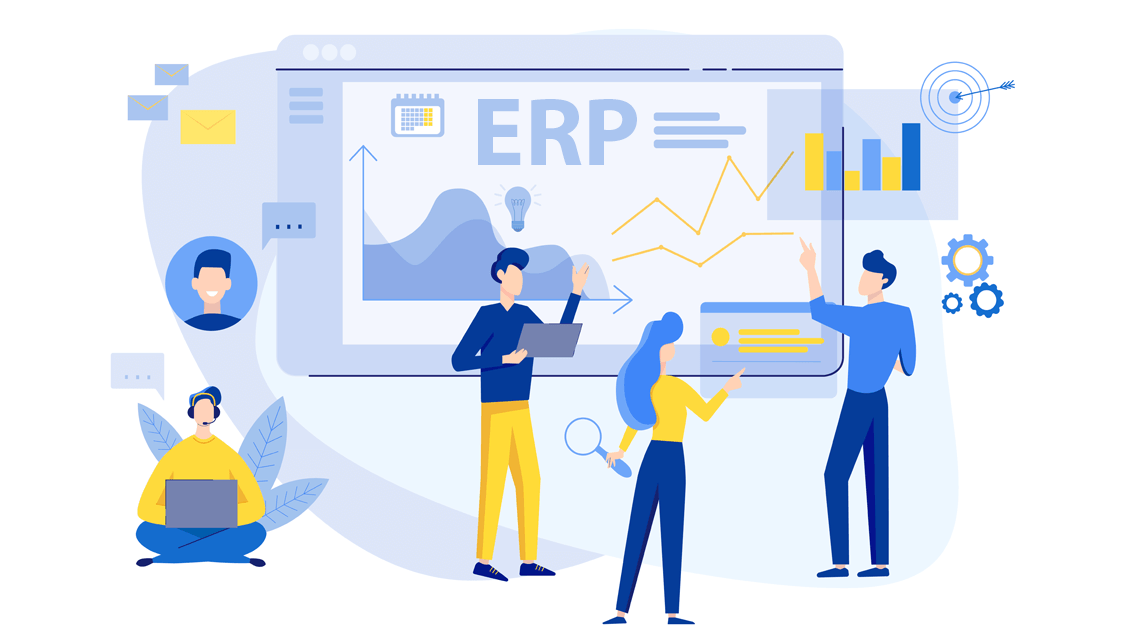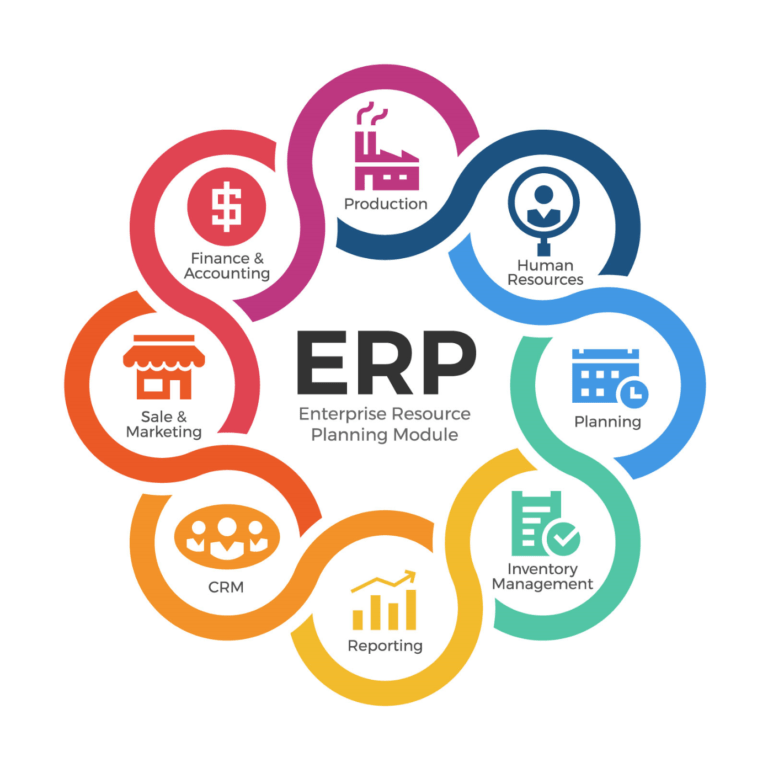Subtotal $0.00

The large amount of information generated by each department of the company is controlled in a centralized and in real time. This automation of repetitive tasks allows the company to have a global vision of the business to take strategic decisions headed for success.
Although the term ERP can be complex -enterprise resource planning-, its definition is simple: an ERP is the integration of the different business processes: sales, finance, purchasing, supply chain, customer service, human resources, marketing, etc. in the same system
ERP development services involve designing, customizing, and implementing enterprise resource planning software solutions tailored to meet the specific needs of organizations. These services typically include requirements gathering, software design and architecture, development, integration with existing systems, testing, deployment, and ongoing support.
The goal is to improve operational efficiency, streamline business processes, enhance data management, and provide a unified platform for managing various aspects of a company’s operations. Service providers often leverage industry best practices and technologies to deliver scalable, secure, and user-friendly ERP solutions that enable businesses to achieve their strategic objectives.
Personalized ERP refers to customized Enterprise Resource Planning systems tailored to meet the specific requirements and preferences of individual businesses. Unlike off-the-shelf ERP solutions that offer standardized functionalities, personalized ERP solutions are designed and developed to align closely with the unique processes, workflows, and needs of a particular organization.


Personalized ERP systems are highly customizable. They are configured to accommodate specific business processes, industry requirements, regulatory compliance, and organizational structures. This customization ensures that the ERP solution fits seamlessly into the existing workflow of the business.

Businesses can choose modules and features that are most relevant to their operations. This flexibility allows organizations to prioritize functionalities that provide the most value and efficiency gains.
Personalized ERP systems often include a user-friendly interface tailored to the preferences and usability needs of employees. The UI/UX design focuses on simplicity, intuitiveness, and efficiency to enhance user adoption and productivity.
Personalized ERP solutions are scalable, meaning they can grow and adapt alongside the business. As the organization expands or changes, the ERP system can accommodate increased transaction volumes, additional users, and new functionalities.
Custom ERP solutions can incorporate specific security measures and protocols tailored to the organization's security requirements. This ensures data protection, compliance with regulations, and mitigation of cyber threats.
Personalized ERP systems typically come with ongoing support and maintenance services. This includes troubleshooting, updates, and enhancements to address evolving business needs and technology advancements.
Enterprise Resource Planning (ERP) software integrates core business processes into a unified system, streamlining operations like finance, HR, and supply chain management for improved efficiency and data visibility.
Companies often switch from ERP systems due to outdated technology, high maintenance costs, or the need for more flexible, scalable solutions to meet evolving business needs.
ERPs work by integrating various business functions into a centralized database, allowing real-time data sharing across departments for improved efficiency and decision-making. They automate processes, streamline workflows, and provide insights through analytics to enhance overall business operations.
Personalized ERPs cater specifically to a company's unique processes and needs, enhancing efficiency, accuracy, and user adoption while reducing unnecessary features and complexities. They promote streamlined operations and improved decision-making tailored to the organization's specific requirements.